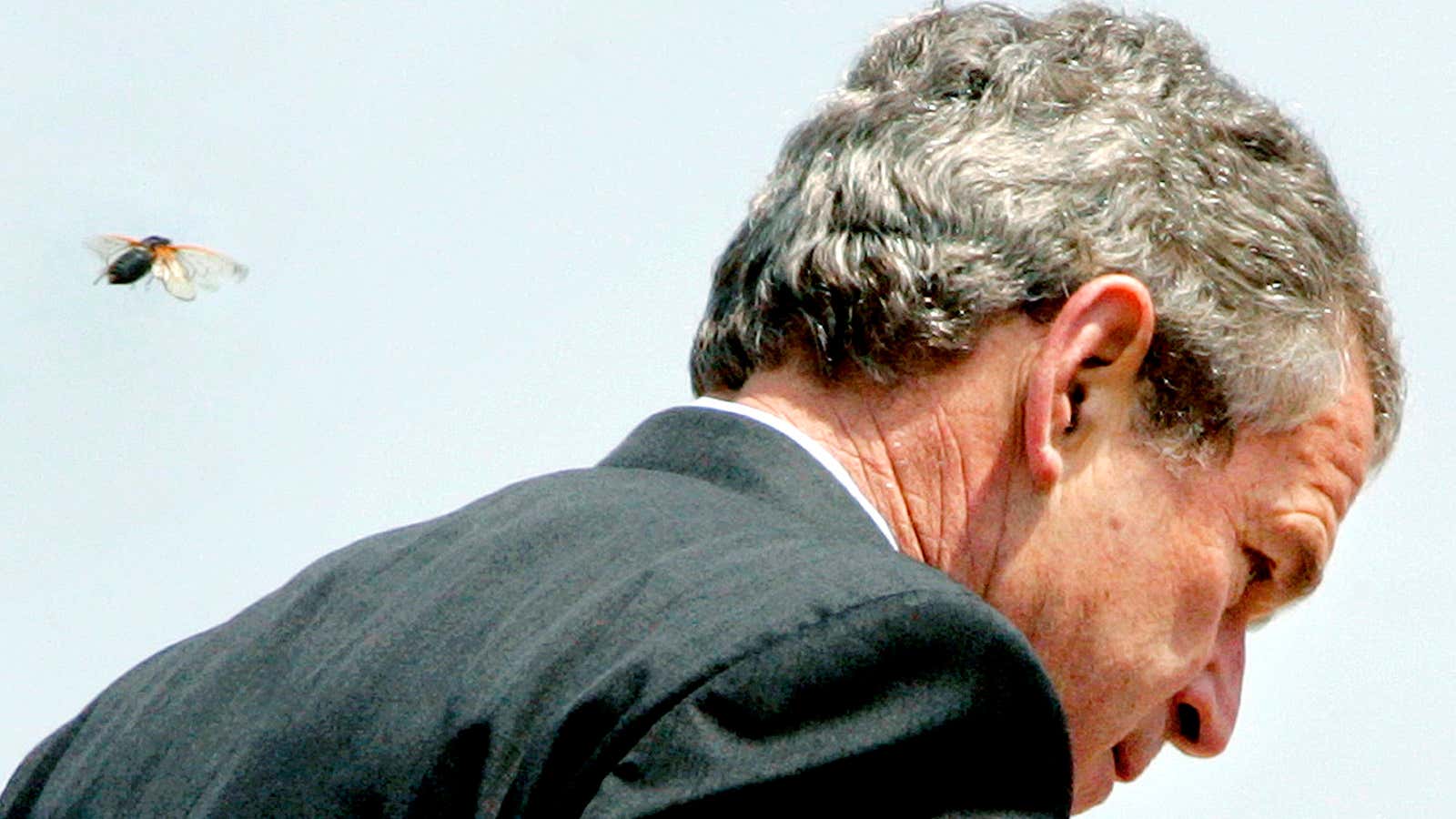The US pulled the bulk of its diplomats from Cuba in September, blaming attacks on its staff that caused hearing loss and concussions. Cuba has denied any involvement, and now it is offering a counter-explanation: The alleged “sonic attacks” are coming from cicadas and crickets.
That detail comes from an AP report on a television special aired in Cuba yesterday to refute the US narrative about flagging diplomatic relations.
“We compared the spectrums of the sounds and evidently this common sound is very similar to the sound of a cicada,” Lt. Col. Juan Carlos Molina, a Cuban government expert, said on the television broadcast Alleged Sonic Attacks. The program also claimed sufficiently loud insect noises could “produce hearing loss, irritation and hypertension in situations of prolonged exposure.”
The US embassy was only reopened in 2016. Since the attacks, the Trump administration, which opposes normalizing relations with Cuba, has expelled Cuban representatives from the US and issued a warning against travel to the island nation.
“We’ve seen a sharp rise in concerns among would-be travelers to Cuba surrounding these unexplained attacks, and a decrease in overall business as a result of those fears,” Brady Hiatt, a Cuba travel consultant, told Quartz.
US travelers can visit Cuba for a variety of educational and humanitarian purposes, but trade and tourist travel, along with doing business with many government-owned entities, is officially prohibited. The Cuban economy, which entered a recession at the beginning of this year, needs all the visiting dollars it can get.
In late 2015, the Obama administration and the Cuban government began an opening process designed to re-link the two countries, which had been stuck in a Cold War conflict since a 1962 embargo imposed by the US on the socialist Cuban government. Despite great enthusiasm from the public, hard-liners on both sides—among Cuba’s socialists and American anti-communists—criticized the opening.
In late 2016, American diplomats began reporting symptoms of hearing loss, dizziness, and headaches; later tests revealed some to be suffering from brain injuries. US investigators suspected the cause was a sonic weapon broadcasting noise above audible frequencies, but have not said more. The plot thickened this summer as Canadian diplomats, who traditionally maintain better relations with Cuba than the US, also complained of sonic attacks and similar symptoms.
US authorities released a sample of the sound, which the Cubans analyzed to discover insect sounds:
The US government is still analyzing the recording to determine exactly what happened, but acknowledges that it might not have picked up higher frequencies involved in the incidents. The White House insists that Cuba must be held responsible for not preventing the attacks; Havana now says it cannot control crickets and cicadas.
Speculation to the real cause abounds. Some American officials blame rogue factions of the Cuban military, which see opening to the US as leading to a loss of their own power. Regular Cuban citizens perceive this is as more propaganda from the United States. Some regional experts have wondered if Russian forces, experienced in psychological conflict, are trying to drive a wedge between US and Cuban rapprochement as another front in a new Cold War.
